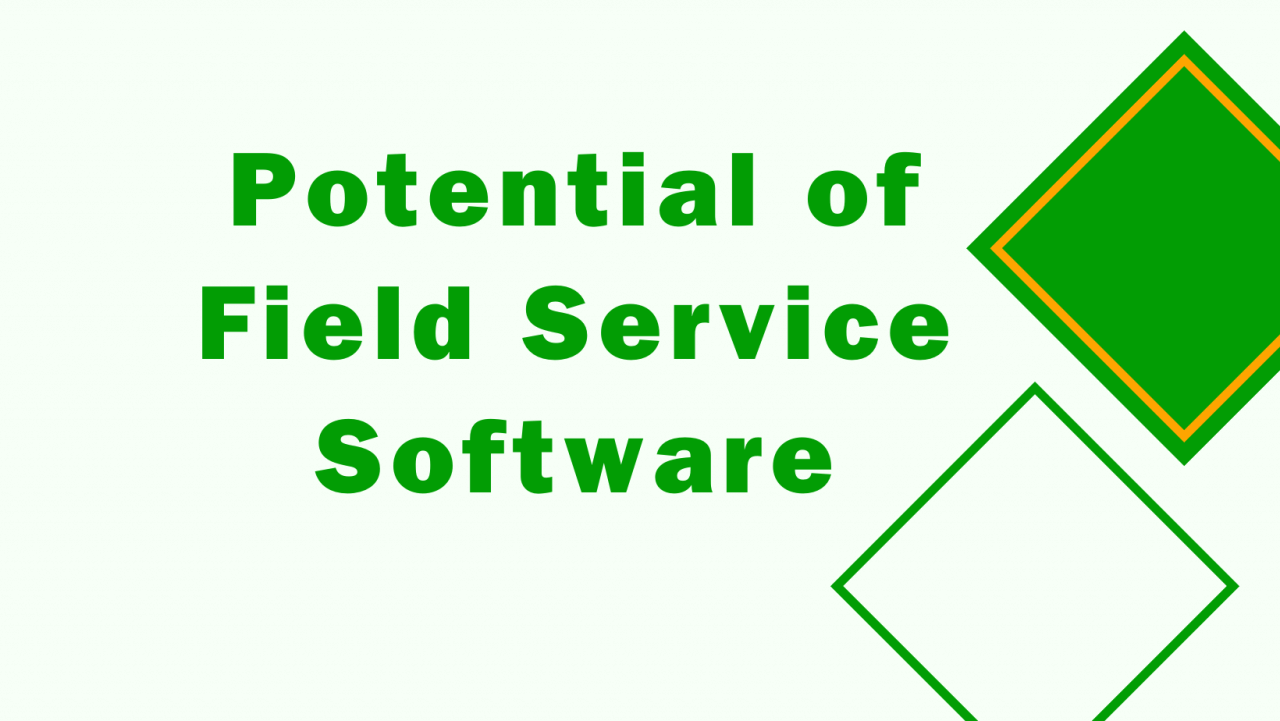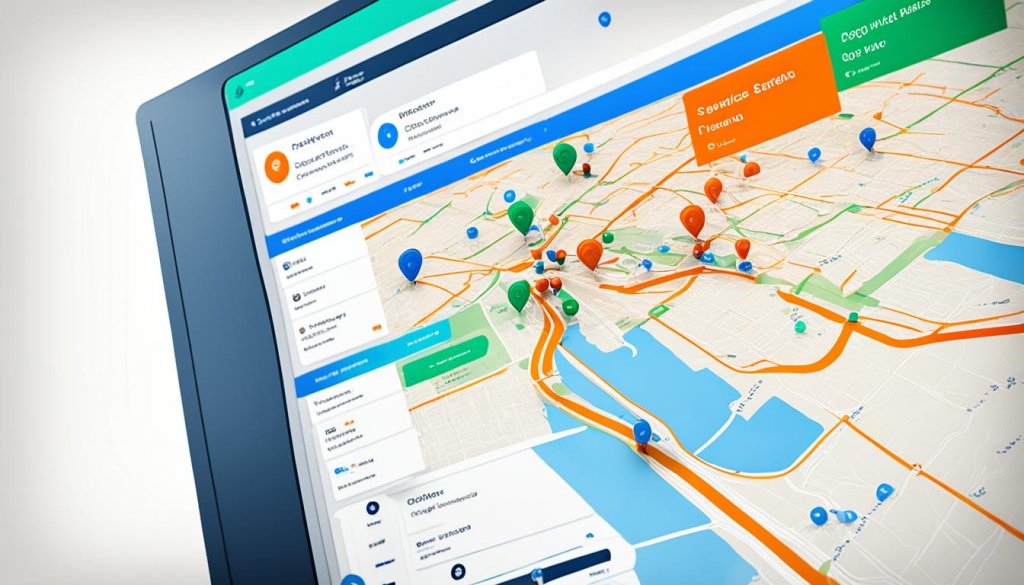Imagine this: You run a growing field service business, providing top-notch repair and maintenance services to customers across the country. Your team of technicians is always on the move, juggling multiple appointments, ensuring timely deliveries, and maintaining customer satisfaction. However, as your business expands, managing the complexities of field service operations becomes increasingly challenging.
That’s where field service software comes in. It empowers you to streamline your processes, eliminate manual errors, and improve overall efficiency. With the right strategies and best practices, field service software can unlock the full potential of your business and propel you towards success in 2024.
In this article, I will share strategies to help you harness the power of field service software and stay ahead of the competition. From choosing the right software solution to implementing and adopting it effectively, you’ll discover how to make the most out of this invaluable tool in the changing landscape of the field service industry.

Key Takeaways:
- Field service software is essential for managing off-site operations efficiently.
- Implementing the right strategies maximizes the benefits of field service software.
- Choosing the right software solution is crucial for success.
- Successful implementation and adoption involve proper training and data security measures.
- Customizing and integrating field service software enhances its effectiveness.
Choosing the Right Field Service Software Solution
When it comes to selecting the ideal field service software solution for your business, several factors should be taken into consideration. These include the deployment method, mobile accessibility, offline capabilities, integration, customization, and scalability options.
First, you need to decide whether a cloud-based or on-premise solution suits your needs. Cloud-based software offers the advantage of accessibility from anywhere with an internet connection, allowing your team to stay connected and productive on the go. On the other hand, on-premise solutions provide greater control over data security as everything is stored internally.
In addition to accessibility, the software should also offer mobile accessibility and offline capabilities. Field service professionals are often on the move, and having a mobile-friendly solution allows them to access crucial information and update records while working in the field, even without an internet connection.
Integration is another crucial aspect to consider. The field service software should seamlessly integrate with existing tools and systems that your business relies on. This ensures efficient communication and avoids the need for manual data entry across different platforms.
Furthermore, the ability to customize the software is vital to cater to your business’s unique needs. Look for solutions that offer customization options, allowing you to tailor the software according to your specific workflows, data fields, and reporting requirements.
Lastly, scalability is crucial if you anticipate your business growing in the future. The software should have the capability to scale with your business needs, accommodating an increasing number of users, customers, and service requests without compromising performance.
Cloud-based vs On-premise: Making the Right Choice
“The deployment method, whether cloud-based or on-premise, plays a crucial role in selecting the right field service software. Consider the advantages of both options and align them with your business requirements.”
By carefully considering the deployment method, mobile accessibility, offline capabilities, integration, customization, and scalability options, you can choose the field service software solution that best suits your business’s needs. This ensures that you have a robust and flexible tool to streamline your field service operations effectively.
Implementing and Adopting Field Service Software Successfully
Once you have chosen the right field service software solution, successful implementation and adoption are key. Providing thorough training to your staff ensures they understand how to use the software effectively. Onboarding new users with personalized accounts and hands-on guidance helps them get acclimated to the system.
Proper training is essential to ensure a smooth transition to the new field service software,” says Julia Martinez, a leading expert in service management software. By investing in comprehensive training programs, businesses can minimize user errors and maximize the software’s potential.”
Data security is of utmost importance when implementing field service software. By implementing encryption and access controls, you can protect sensitive customer information and ensure compliance with data privacy regulations.
When it comes to customer communication, field service software offers features that help keep customers informed. These features include automated notifications and real-time updates on service appointments.
“The ability to communicate with customers in a timely manner is a key advantage of field service software,” says Michael Johnson, a field service manager at ABC Company. “It not only improves customer satisfaction but also helps us deliver efficient and reliable service.”
Feedback from customers is invaluable for improving service quality. Field service software provides tools for gathering customer feedback through surveys, ratings, and reviews. By actively seeking and acting upon customer feedback, businesses can continually improve their services and build strong customer relationships.
Reporting and analytics capabilities within field service software allow businesses to track performance metrics and make data-driven decisions. By analyzing data, service managers can identify trends, measure customer satisfaction, and optimize resource allocation for improved efficiency.
When calculating the return on investment (ROI) for field service software, consider not only the cost savings from increased efficiency but also the benefits of improved customer satisfaction and reduced operational costs.
“The ROI of field service software goes beyond just cost reduction,” says Sarah Thompson, a field service consultant. “It empowers businesses to deliver exceptional service, which ultimately leads to increased customer loyalty and higher revenue.”
In order to maximize the value of field service software, it’s important to provide regular training sessions, optimize workflows, and review software usage for potential improvements. By continually investing in the development and adoption of field service software, businesses can stay ahead of the competition and drive success in their service delivery.
Implementing and adopting field service software successfully requires a strategic approach that incorporates training, data security, customer communication, feedback analysis, and ROI considerations. By following these best practices, businesses can unlock the full potential of their field service software and achieve optimal outcomes in their service operations.
Customizing Your Field Service CRM System
To unlock the full potential of your Field Service CRM System, customization is key. Every business is unique, so it’s important to tailor your CRM system to fit your specific needs. This includes customizing service processes, customer data, and reporting to ensure you are getting the most value out of the system.
Customization allows you to adapt the system to match your workflows and preferences, providing a personalized experience for your team. By customizing your Field Service CRM System, you can streamline your operations and improve efficiency.
One aspect of customization is customizing service processes. This involves defining the stages and steps through which each service request or project passes. By configuring the system to reflect your specific processes, you can create a standardized workflow that aligns with your business requirements.
Another important area of customization is customer data. Your Field Service CRM System should allow you to store and manage customer information in a way that is meaningful to your organization. This may include capturing specific data points that are relevant to your business, such as customer preferences or additional contact information.
Reporting is another key component of customization. Your CRM system should provide you with the flexibility to create reports and analyze data in a way that is meaningful to your business. This may involve creating custom dashboards or designing specific reports that capture the metrics that matter most to your organization.
Overall, customizing your Field Service CRM System ensures that it aligns with your unique needs and provides the functionality required to support your business goals. By tailoring the system to fit your organization, you can optimize its capabilities and unlock its full potential.

Training Your Team for Field Service CRM Success
To fully unlock the potential of our field service CRM system, it is crucial to provide comprehensive training for our team. Training sessions should be conducted at all levels of the organization to ensure everyone understands how to use the CRM effectively. Ongoing support should also be provided to help navigate the system and troubleshoot any issues that may arise.
“Proper training is the foundation for success with our field service CRM system,” says Mark Thompson, CRM Manager at XYZ Company. By investing in training, we empower our team to utilize the system to its fullest potential, resulting in improved service delivery and customer satisfaction.”
Well-trained teams are more likely to embrace and utilize the CRM effectively, leading to better outcomes for our business. Through training, our team members gain the knowledge and skills necessary to leverage the CRM’s features and functionalities, ensuring efficient and effective service management.
During training sessions, we will cover a variety of topics, including:
1. CRM System Navigation
It’s important for our team members to become familiar with the CRM system’s interface, understanding how to navigate through different modules, screens, and menus. This knowledge will enable them to quickly locate the information they need and perform tasks efficiently.
2. Data Entry and Management
Accurate and up-to-date data is essential for successful CRM implementation. Our team will learn how to enter and manage customer data, ensuring the CRM remains a reliable source of information for service-related activities.
3. Creating and Managing Work Orders
Work orders are the backbone of our field service operations. Training will focus on creating work orders, assigning them to technicians, tracking progress, and ensuring timely completion. By mastering work order management, our team will be able to streamline service processes and enhance overall efficiency.
4. Utilizing Communication Tools
Effective communication is crucial for successful service delivery. Our team will learn how to utilize the CRM’s communication tools, such as email integration and real-time messaging, to maintain smooth and transparent communication with customers, technicians, and other stakeholders.
5. Customizing the CRM System
An important aspect of the training is familiarizing our team members with the customization options available in the CRM system. This includes adapting workflows, creating custom fields, and configuring settings to align with our unique business processes and requirements.
By providing comprehensive training and ongoing support, we ensure that our team members have the knowledge and skills to leverage the full potential of our field service CRM system. This investment in training will ultimately result in improved service delivery, increased customer satisfaction, and business success.
Using Data to Drive Decisions in Field Service CRM
As an essential component of field service operations, a CRM system provides access to a wealth of data that can significantly impact business decisions. By utilizing this data effectively, companies can gain valuable insights into customer behavior, service trends, and operational efficiencies. Analyzing the information available within the CRM system allows businesses to make more informed decisions that ultimately benefit their bottom line. Additionally, leveraging the analytics capabilities within the CRM system enables organizations to track key metrics and drive continuous improvement.
Data acts as a powerful tool in understanding customer preferences and aligning service offerings accordingly. By analyzing the data collected within the CRM system, businesses can uncover patterns and trends that shape customer behavior. This understanding allows companies to tailor their services to better meet customer needs, enhancing overall customer satisfaction and loyalty.
Furthermore, data analysis plays a crucial role in optimizing operational efficiencies. By examining the data, organizations can identify areas for improvement, such as bottlenecks in service delivery or underutilized resources. Armed with this knowledge, businesses can implement targeted strategies to streamline processes, reduce costs, and improve overall productivity.
When it comes to decision-making, the availability of data significantly enhances the quality and accuracy of choices. Instead of relying on assumptions or gut feelings, organizations can leverage the insights gained from data analysis to make data-driven decisions. These decisions are more likely to align with customer needs and business objectives, resulting in better outcomes.
Automating Processes with Field Service CRM
Field service CRM systems offer a range of automation features that can streamline tasks and improve efficiency. By leveraging the power of automation, businesses can free up valuable time and resources, allowing their team to focus on higher-value activities and ultimately enhancing productivity and customer satisfaction.
One of the key benefits of using a field service CRM is the ability to automate routine processes. For example, scheduling appointments can be automated based on availability, technician skills, and customer preferences. This eliminates the need for manual back-and-forth communication and reduces the risk of errors or scheduling conflicts.
Another area where automation can significantly impact efficiency is sending notifications. Whether it’s sending reminders to customers about upcoming appointments or providing real-time updates on service status, automated notifications ensure timely and accurate communication without the need for manual intervention.
In addition, field service CRM systems can automate report generation, eliminating the need for manual data entry and analysis. With the click of a button, businesses can generate comprehensive reports that provide insights into key performance metrics, such as service response times, customer satisfaction ratings, and technician productivity.
“Automation is a game-changer in field service management. By automating processes such as appointment scheduling, notification sending, and report generation, businesses can achieve higher levels of efficiency and streamline their operations.” – John Davis, Field Service Expert
By automating these processes, businesses not only save time and effort but also reduce the likelihood of errors and inconsistencies. With streamlined operations, field service teams can deliver faster, more reliable service to customers, leading to improved satisfaction and loyalty.
Furthermore, automation allows businesses to scale their operations without sacrificing quality. As demand increases, automated processes can handle higher volumes efficiently, eliminating bottlenecks and ensuring a smooth customer experience.
To illustrate the benefits of automation in field service CRM, consider the example of a HVAC company. By automating appointment scheduling, they can ensure that service technicians are dispatched to customer locations at the right time, with all the necessary equipment and information at their disposal. Automated notifications keep customers informed about technician arrivals and any delays, improving transparency and reducing customer anxiety. Finally, automated report generation provides the HVAC company with insights into service metrics, enabling them to identify areas for improvement and optimize their operations.
Image alt tag: Automation in Field Service CRM

Integrating Your Field Service CRM with Other Systems
To maximize the effectiveness of your field service CRM system, it’s crucial to consider integrating it with other key business systems. By seamlessly combining your field service CRM with accounting software, inventory management systems, and marketing automation tools, you can ensure a smooth and continuous flow of data across your entire organization, leading to improved overall performance.
Integration allows for the consolidation of data from different systems, providing you with a holistic view of your operations. Having access to comprehensive and interconnected data empowers you to make better-informed decisions, identify patterns, and uncover valuable insights for more efficient collaboration and progress.
For example, integrating your field service CRM with accounting software enables automatic synchronization of customer billing information, eliminating the need for manual data entry and reducing errors. This integration improves accuracy and streamlines the financial aspects of your field service operations.
Benefits of Integration
By integrating your field service CRM with other systems, you can:
- Eliminate data silos and ensure data consistency
- Improve efficiency by reducing duplicate data entry
- Enhance customer service by accessing comprehensive customer information
- Streamline operations and workflows
- Optimize resource allocation and scheduling
- Enable real-time updates and notifications
By leveraging the power of integration, you can unlock the full potential of your field service CRM system and maximize its impact on your business. It eliminates manual data transfer, minimizes the risk of errors, and saves valuable time and resources. Ultimately, integration helps you build a more cohesive and efficient field service ecosystem, resulting in improved customer satisfaction and business success.
Choosing the Right Integration Approach
When integrating your field service CRM with other systems, you have several options to consider:
- Pre-built integrations: Some CRM providers offer pre-built integrations with popular software applications, making the integration process easier and faster. These pre-built integrations typically include seamless data synchronization and require minimal technical expertise.
- Custom integrations: For more complex integration requirements, a custom integration approach may be necessary. This involves developing specific integration solutions tailored to your unique needs. Custom integrations can offer greater flexibility and customization options but may require more time and resources.
- Middleware platforms: Middleware platforms act as intermediaries between different systems, allowing data to flow smoothly between them. These platforms simplify integration processes and can be used to connect multiple systems, even those that don’t have built-in integration capabilities.
When choosing the right integration approach, consider factors such as the complexity of your integration requirements, available resources, and the scalability needs of your organization.
Gathering Customer Feedback with Field Service CRM
As a business, it is essential to gather feedback from your customers about their service experiences. This is where your field service CRM system plays a crucial role. By leveraging your CRM system, you can collect valuable insights that help identify areas for improvement and make informed adjustments to enhance customer satisfaction.
“Customer feedback is invaluable for continuously improving service quality and building strong customer relationships.”
Encouraging customers to provide feedback is key. Through surveys, ratings, and reviews, you can actively seek their input and gain a better understanding of their needs and expectations. By acknowledging and acting upon this feedback, you demonstrate your commitment to delivering exceptional service.
When it comes to gathering customer feedback, your field service CRM system acts as a central hub, allowing you to aggregate and analyze all the data in one place. This information can be used to identify trends, spot recurring issues, and implement targeted improvements that address the specific pain points your customers may have.
With a well-implemented field service CRM system, you can:
1. Enhance Service Quality
By actively listening to your customers’ feedback, you gain valuable insights into their experiences and expectations. This enables you to make the necessary adjustments to enhance service quality and deliver exceptional experiences at every touchpoint.
2. Identify Areas for Improvement
Customer feedback helps you identify areas in your service delivery that may require improvement. Whether it’s a particular process, response time, or aspect of customer support, the feedback received through your field service CRM system can guide you in making data-driven decisions to address these areas effectively.
3. Build Customer Trust and Loyalty
When customers see that their feedback is valued and acted upon, it fosters a sense of trust and loyalty in your brand. The transparency and dedication you demonstrate through your CRM system can help build long-lasting relationships with your customers.
By leveraging the power of your field service CRM system to gather customer feedback, you can continuously improve service quality, drive customer satisfaction, and differentiate your business from your competitors.
Conclusion
In conclusion, implementing and optimizing field service software is essential for businesses looking to succeed in today’s dynamic market. By choosing the right software, training your team effectively, using data to drive decisions, automating processes, integrating with other systems, and gathering customer feedback, you can unlock the full potential of field service software and achieve success in your service delivery. By following the strategies outlined in this article, businesses can elevate their field service operations and drive efficiency and success in 2024.
See how FieldAx can transform your Field Operations.
Try it today! Book Demo
You are one click away from your customized FieldAx Demo!
FAQ
What factors should I consider when choosing a field service software solution?
When selecting a field service software solution, factors to consider include the deployment method (cloud-based or on-premise), mobile accessibility, offline capabilities, integration with existing tools and systems, customization, and scalability options.
How can I successfully implement and adopt field service software?
Successful implementation and adoption of field service software can be achieved by providing thorough training to your staff, onboarding new users with personalized accounts and hands-on guidance, implementing data security measures, complying with industry regulations, leveraging customer communication and feedback features, and utilizing reporting and analytics capabilities.
How can I customize my field service CRM system?
To customize your field service CRM system, you can tailor service processes, customer data, and reporting to fit your specific business needs.
How can I train my team for field service CRM success?
To train your team effectively for field service CRM success, provide thorough training sessions at all levels of the organization and ongoing support to navigate the system and troubleshoot any issues that may arise.
How can I use data to drive decisions in field service CRM?
By leveraging the data provided by your field service CRM system, you can gain insights into customer behavior, service trends, and operational efficiencies, allowing you to make more informed decisions.
How can I automate processes with field service CRM?
Field service CRM systems offer automation features that can streamline tasks such as scheduling appointments, sending notifications, and generating reports, freeing up time for your team to focus on higher-value activities.
How can I integrate my field service CRM with other systems?
To integrate your field service CRM with other systems, consider connecting it with accounting software, inventory management tools, and marketing automation platforms to ensure seamless data flow and improved overall performance.
How can I gather customer feedback with field service CRM?
Field service CRM systems can be used to gather feedback from customers through surveys, ratings, and reviews. Actively seeking and acting upon customer feedback helps identify areas for improvement and enhance customer satisfaction.
What are some strategies for success with field service software?
Strategies for success with field service software include choosing the right software solution, implementing it successfully, customizing it to fit your specific needs, training your team effectively, using data to drive decisions, automating processes, integrating it with other systems, and gathering customer feedback.
How can field service software help businesses succeed in 2024?
Field service software helps businesses succeed in 2024 by streamlining processes, eliminating manual errors, improving efficiency, providing data-driven insights, automating tasks, integrating systems, and enhancing customer satisfaction.
Author Bio
Co-Founder & CMO at Merfantz Technologies Pvt Ltd | Marketing Manager for FieldAx Field Service Software | Salesforce All-Star Ranger and Community Contributor | Salesforce Content Creation for Knowledge Sharing






